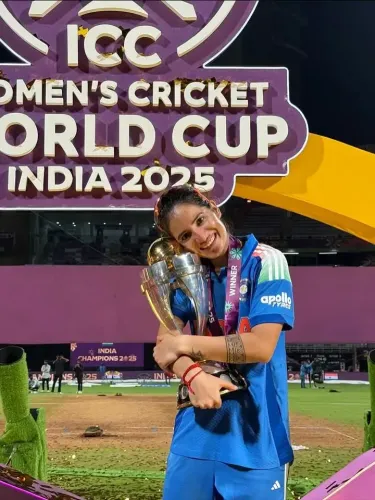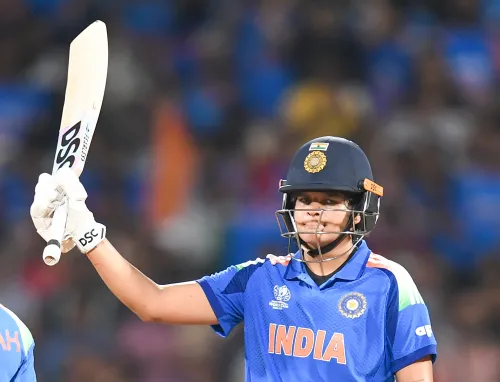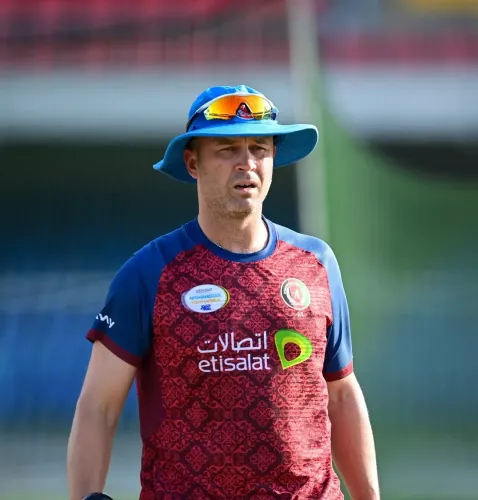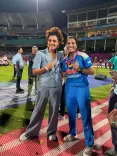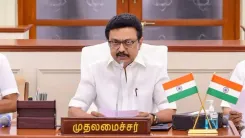Did Kohli Reinforce the Importance of Test Cricket?
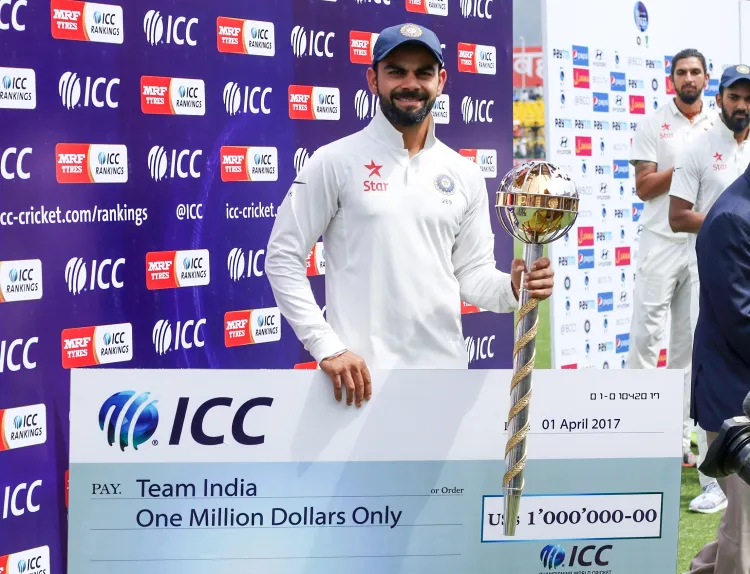
Synopsis
Key Takeaways
- Kohli's Legacy: Reinforced the significance of Test cricket.
- Record Holder: Fourth-highest run-scorer for India in Test matches.
- Leadership Success: Most successful Test captain in India's history.
- Young Talent: Opportunity arises for emerging players to step up.
- Respect for Decisions: Acknowledging a player's choice to retire.
New Delhi, May 12 (NationPress) - With Virat Kohli's announcement of his retirement from Test cricket on Monday, a remarkable chapter in Indian cricket has come to an end. WV Raman, former Indian cricketer and coach of the senior women’s team, emphasized that Kohli’s greatest contribution was instilling a sense among players and fans that Test cricket is the most vital format of the sport.
In a heartfelt Instagram post, Kohli, now 36, concluded his prestigious Test career, having accumulated 9230 runs from 123 matches at an impressive average of 46.85. This makes him India’s fourth-highest run-scorer in Test cricket, following legends like Sachin Tendulkar, Rahul Dravid, and Sunil Gavaskar.
Kohli will be fondly remembered for his unwavering support of Test cricket, actively encouraging young fans to fill stadiums to witness the format. “He was an exceptional ambassador for Test cricket, consistently delivering runs akin to the greats of the game. I regard him as an elite player in this format. His passion as a captain during Test matches was remarkable,” stated Raman.
“Everyone would agree that Kohli was a powerful endorsement for Test cricket, and that’s a legacy that will endure. His numbers are noteworthy, but more significant is the legacy he leaves behind, reminding everyone that Test cricket holds the highest importance in the sport,” Raman remarked during an exclusive interview with IANS.
Kohli debuted in Test cricket against the West Indies in June 2011 and captained the team in 68 matches. Under his leadership, India celebrated 40 victories, including a historic Border-Gavaskar Trophy win in Australia during the 2018-19 season, solidifying his place as India’s most successful Test captain.
“The intensity he brought to the game was unparalleled. Normally, a player would focus on their performance, but Kohli’s infectious intensity was evident even before he became captain. Once he took the helm, he fully immersed himself, fostering a culture of all-in dedication,” Raman explained.
“Kohli’s mindset and his aggressive approach are encapsulated in his performance as captain. The results during his tenure speak volumes about the culture he instilled within the team,” Raman added, recalling his positive feedback on Kohli during his coaching stint with the U19 team in South Africa in 2008.
Recently, Kohli faced challenges in maintaining consistent performance, managing only 190 runs in nine innings during the 2024/25 Border-Gavaskar Trophy series, which India ultimately lost 3-1. Notably, he scored 100 runs in a standout second innings at Perth.
IANS reported that Kohli had signaled his intention to retire from the format prior to the upcoming tour of England starting June 20. The BCCI even attempted to engage a significant cricketing figure to persuade him to reconsider, but to no avail.
“Cricketers often have an intuitive sense when it's time to step away. They may not know exactly when it will happen, but there comes a point when they decide to move on. Kohli seems to have contemplated this for a while, and once a player feels ready to retire, it becomes challenging for anyone to reignite their passion at that stage of their career. If he believes it's time, we must respect his decision,” Raman concluded.
Kohli’s retirement follows closely after Rohit Sharma announced his own, creating a significant void in India’s batting lineup as they prepare for a five-match Test tour in England.
“The young players currently in the squad should view this as a prime opportunity to step up. Although they may not replicate Rohit or Kohli's achievements immediately, they should strive to emulate their legacies over time. They need to approach this gradual process with patience and not succumb to the pressure of matching their predecessors too quickly,” Raman advised.

